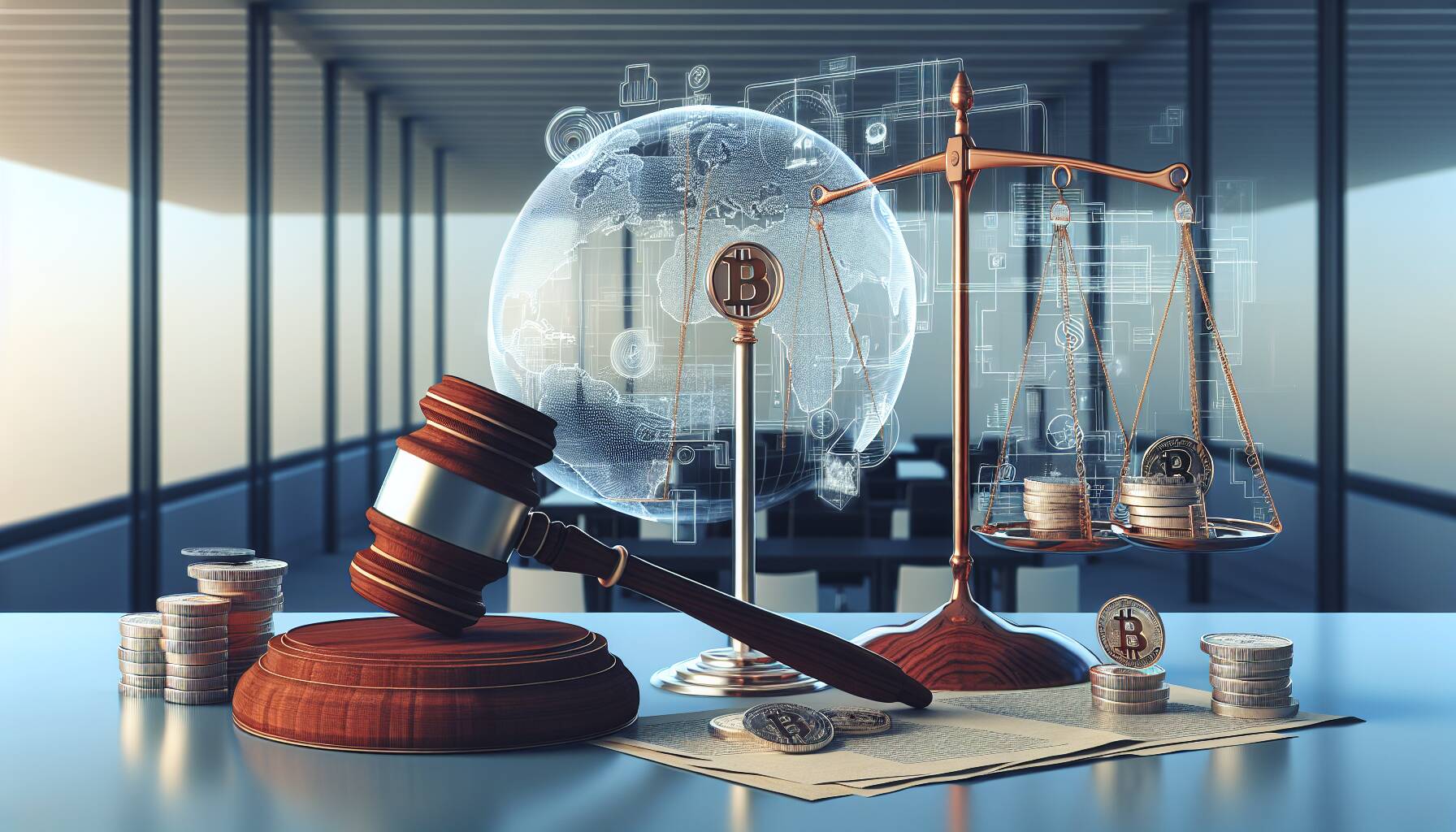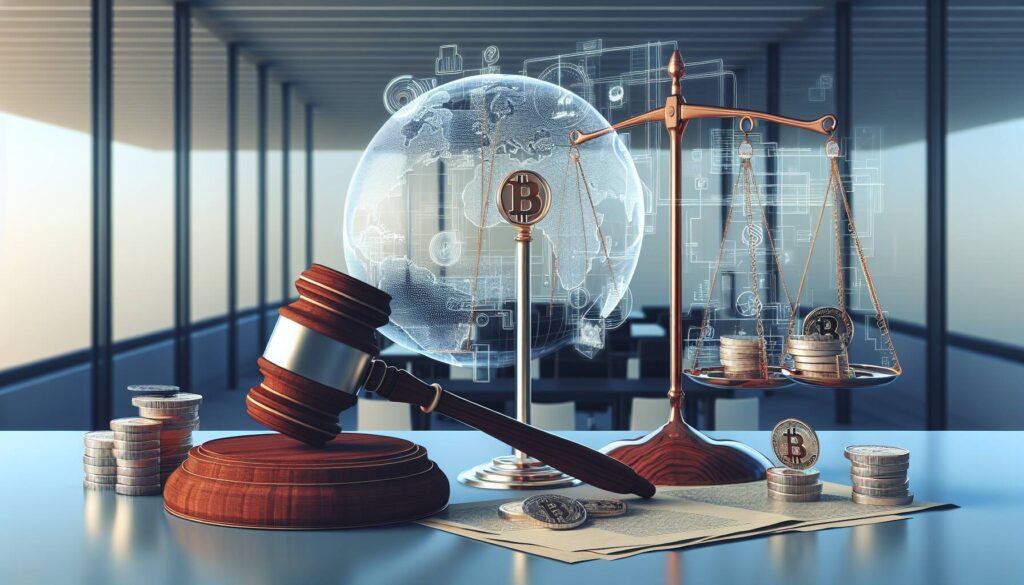The cryptocurrency landscape is currently abuzz with speculation surrounding former President Donald Trump and the potential issuance of an executive order aimed at reshaping the federal oversight of digital assets. This anticipated move promises to usher in a new era of regulation, which many in the industry view as a welcoming shift. However, such changes could come with ethical implications tied to Trump’s own financial interests in the crypto sphere.
Shortly after Trump assumed office again, concerns were raised by Democrats regarding his connections to World Liberty Financial, a crypto venture that could see its value surge with favorable regulatory changes. Additionally, Trump’s eponymous token (TRUMP), launched just before his return, is under scrutiny as critics warn that it poses risks of circumventing national security and anti-corruption laws. Representative Maxine Waters highlighted these concerns, suggesting that this new coin could allow anonymous contributions from various entities, potentially including foreign adversaries.
“This committee must take immediate action to investigate the grave conflicts of interest Donald Trump carries with him to the Office of the President,” stated Gerry Connolly, a prominent Democrat and the head of the House Oversight Committee.
Waters and Connolly’s outcries reflect a broader apprehension within Congress about the intertwining of Trump’s business ventures and his political actions. While lawmakers have struggled to reach a bipartisan view on stablecoin regulations, the conversation surrounding crypto remains paramount, especially as Trump promised swift action in this realm. As it stands, the newly formed crypto task force at the Securities and Exchange Commission marks the most significant federal response to cryptocurrency under the current administration, but the industry’s hopes rest on what Trump’s forthcoming decisions may bring.

The Impact of Trump’s Potential Executive Order on the Crypto Industry
The crypto industry is currently in anticipation of an executive order from President Donald Trump that could significantly reshape the landscape of digital asset oversight in the United States. Here are some key points related to this situation:
- Executive Order Anticipation: The crypto industry waits for President Trump’s executive order that is expected to foster a more accommodating environment for digital assets.
- Business Benefits for Trump: An executive order may enhance the value of Trump’s family business interests, particularly in crypto venture World Liberty Financial and the TRUMP token.
- Ethical Concerns Raised: Democrats, particularly Gerry Connolly, are voicing concerns about potential conflicts of interest stemming from Trump’s business dealings, calling for investigations.
- Circumvention of Laws: Representative Maxine Waters expressed worries that Trump’s token allows for the evasion of national security and anti-corruption laws, which could lead to undue influence from corporations and foreign entities.
- Impact on the Crypto Industry: Waters argues that Trump’s actions could severely damage the industry’s reputation, which has been striving for legitimacy and fair treatment among traditional financial institutions.
- Legislative Challenges: Despite previous efforts to establish stablecoin regulations, no bipartisan agreement was reached, leaving future legislative initiatives uncertain.
- SEC Crypto Task Force: The establishment of a new crypto task force by the SEC’s acting chair indicates a step towards more structured oversight, but substantial progress remains to be seen.
The potential executive order could have wide-reaching implications for the crypto market, including:
- Market Volatility: Changes in regulation can lead to significant fluctuations in crypto asset values, impacting individual investors and businesses alike.
- Regulatory Clarity: A more welcoming regulatory framework could instill confidence in investors, encouraging more participation in the market.
- Corporate Investments: Increased legitimacy could attract institutional investments, providing more capital and resources to the crypto ecosystem.
“This situation underscores the intersection of politics and finance, and how the actions of government leaders can have profound effects on emerging industries.”
Trump’s Potential Executive Order on Crypto: Opportunities and Challenges Ahead
The impending executive order regarding cryptocurrency from President Donald Trump represents a significant shift that could reshape the federal landscape for digital assets. While this potential change may create lucrative opportunities for Trump’s own ventures—including World Liberty Financial and the TRUMP token—it also raises substantial ethical concerns sure to ignite fierce debate within political circles. Trump’s move seems poised to offer a competitive edge for his businesses; however, the implications extend far beyond personal profit.
Competitive Advantages: An easing of regulatory oversight could enhance the liquidity and valuation of Trump’s crypto-related interests, possibly attracting investors keen on capitalizing on a newly revitalized market. This welcoming approach to digital assets may reinvigorate interest in cryptocurrencies broadly, potentially benefiting other stakeholders within the industry who have long sought clarity and consistency in regulatory frameworks. Those active investors and companies entrenched in the crypto space might find themselves at an advantage if this environment encourages innovative projects and greater access to funding.
Competitive Disadvantages: On the flip side, the scrutiny from Democratic lawmakers is palpable. Key figures like Gerry Connolly and Maxine Waters are already warning that such executive actions could lead to conflicts of interest and corruption, potentially damaging public trust in both the Trump administration and the cryptocurrency industry. Waters’ concerns about Trump’s meme coin circumventing national security laws underline a broader worry that his executive order could further entrench existing fears about unscrupulous practices in crypto, casting a shadow over the entire sector that advocates for legitimacy.
This dynamic could create significant challenges for ethical cryptocurrency companies striving for acceptance and regulatory clarity. As the noise around Trump’s potential conflicts grows, these companies might find themselves facing intensified scrutiny, limiting their ability to operate freely in a landscape that should value transparency. Their efforts to differentiate themselves in an increasingly contentious atmosphere may be hindered by the actions of one individual whose interests diverge sharply from those of the wider market.
Ultimately, industries and sectors surrounding cryptocurrency may be left grappling with the ramifications of Trump’s order. The occasion presents a double-edged sword; while some may benefit from a more lenient environment, others could face backlash as the integrity of the cryptocurrency market is called into question. Stakeholders will need to tread carefully as they navigate the evolving political and regulatory frameworks that could either help or hinder their operations in this fast-paced arena.

















